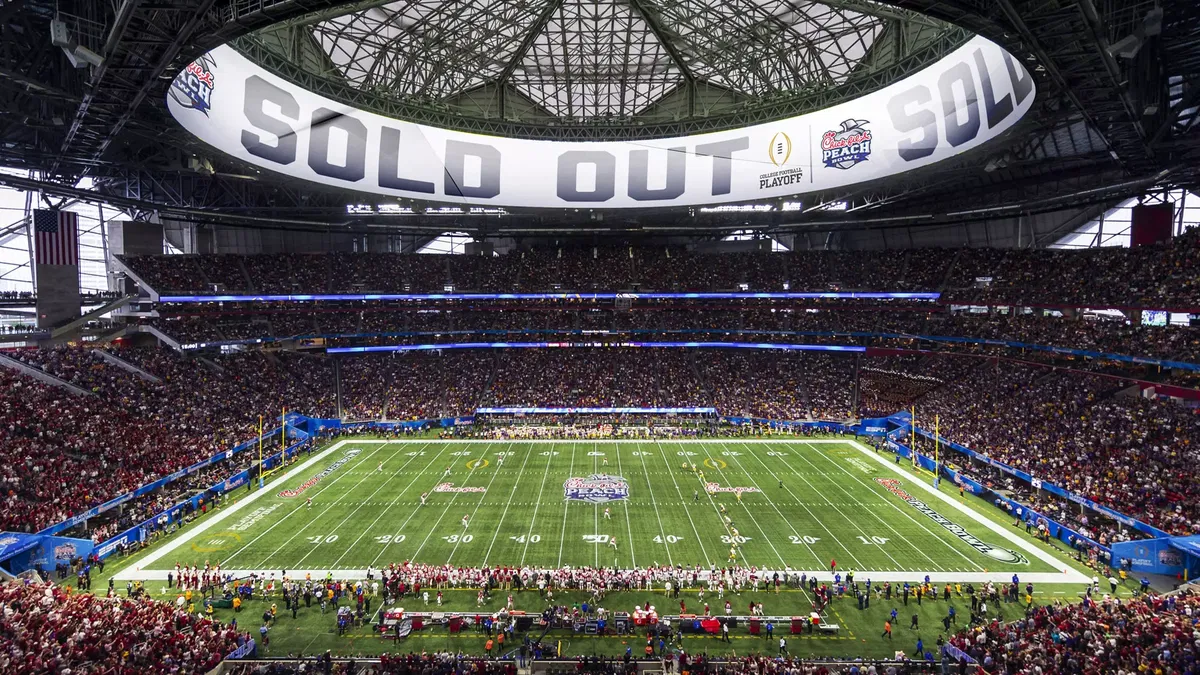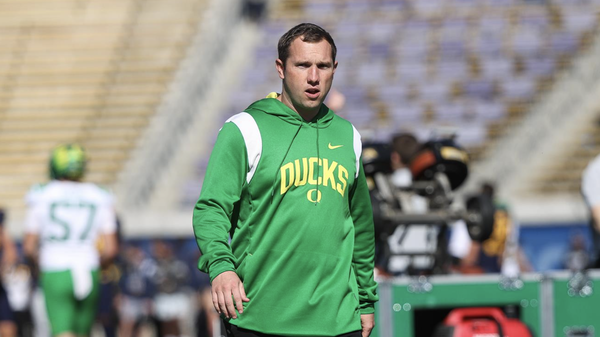



Refs with the ultimate plot twist in ATL, huh? In what looked like a one-sided affair in first half, the Peach Bowl games between the Longhorns and the Sun Devils took an entirely unexpected turn towards the underdogs. Trailing 8-24 in the 4th quarters, Kenny Dillingham’s boys, led by a jack of all trades in Cam Skattebo, made a comeback that could have been etched in history, if not for a controversial call in the dying moments of the game.
Watch What’s Trending Now!
ASU fans have every reason to be mad after that no-call on Texas safety Michael Taaffe. The man’s straight-up collided facemask-to-helmet with Melquan Stovall late in the 4th quarter—like, how is that not targeting?! That hit had Stovall numb. The SEC-themed refs took a long look, shrugged, and let it slide. Score tied at 24 with 1:15 left, and instead of a flag, we get overtime. What would have happened if it were a targeting call? Well, first of all, the Sun Devils, on a 4th and 5, would not have punted the ba-l.

Instead, they could have let the clock die and won the game on a field goal or even scored a touchdown, going by the momentum ASU was seeing in the 4th quarter. What did we get? No penalty for an obvious targeting of a defenseless receiver. No wonder the ASU head coach didn’t let the game go ahead for a while without getting an adequate explanation from the refs. Eventually, the game did go ahead. The Longhorns got the ball, and Quinn Ewers marched down the field to set up an easy (or it looked like) field goal for his kicker Burt Auburn. And he missed? Justice, you may say?
Well, you already know Quinn Ewers and the Longhorns sealed the deal in OT. So, no justice this time around. The plotters won, the big dogs went to the semis, and Goliath was left heartbroken.
Did that targeting really ruin the game for Kenny Dillingham’s ASU
Kenny Dillingham was livid, and for good reason. The man’s out here trying to lead a young ASU squad against a powerhouse like Steve Sarkisian’s Texas, and the refs served him a cold dish of bias. And let’s not forget Stovall. The wideout literally left sprawled on the turf after that hit, and ASU’s offense low-key stalled right after. Coincidence? Hardly.
It’s not just fans and players calling foul. Stats back it up. Texas led the SEC in penalties all season, averaging over 7 per game. Yet, in the biggest moment, the zebras’ whistle stayed silent. And that Overtime finish? Boy, let’s look into that: Both teams scored in OT1, making it the game 31-31. Then comes the prime Ewers mania. On the first play of OT2, Quinn Ewers turned into Picasso, painting a 25-yard lob pass to tight end Gunnar Helm. There’s a rule that you gotta go for a 2-point conversion in OT2 after a touchdown. And just when you thought Sarkisian couldn’t flex his play-calling muscles any harder, Ewers took a snap and rolled a few baby steps to the right and dropped a dime to Matthew Golden for a 2-point conversion. Game. Set. Longhorns. Match. The Longhorns walked away off like they owned Mercedes-Benz, leaving ASU stunned and wondering what could’ve been.
It’s fair to ask if that targeting call—or lack of it—decided the game. Low-key, we all know what it was. The refs gave a little New Year’s gift to Texas outta SEC favoritism. Sure, ASU had its chances, especially when Texas kicker Bert Auburn’s last-minute field goal clanked off the post. But let’s be real—momentum is a cruel beast. That no-call zapped the Sun Devils’ spark, and by the time overtime rolled around, the Longhorns had all the juice. Either way, one thing’s for sure—this Peach Bowl is going down as one of the most controversial games of the year, if not the most controversial.





